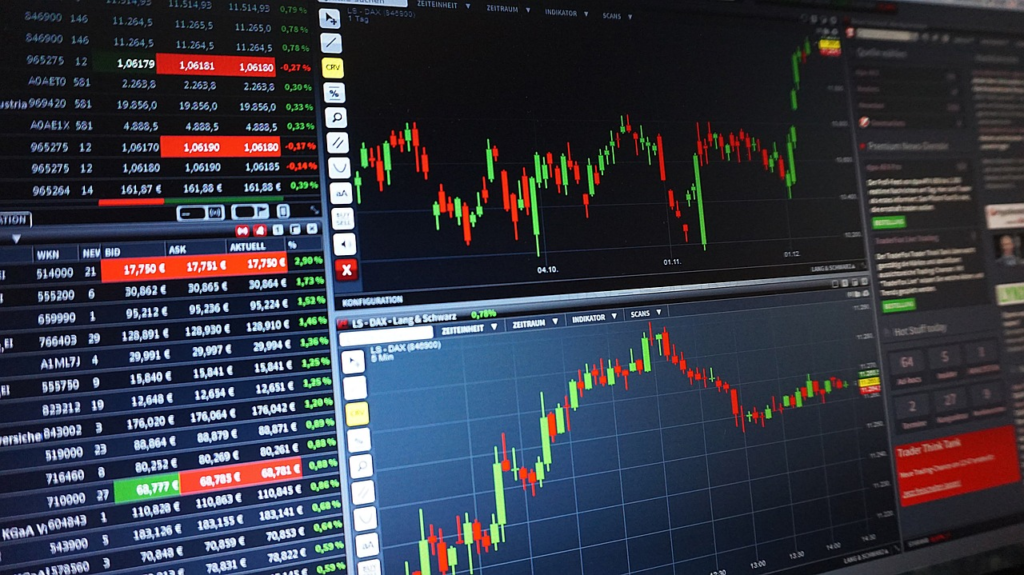The digital age has democratized access to the financial markets, and at the heart of this revolution is the online trading platform. For a forex trader, the platform is more than just software; it’s the command center for all market activity. It’s where analysis is performed, orders are executed, and strategies are deployed. With a vast and ever-expanding landscape of options, the question of “which platform is best for forex trading?” is not a simple one. The answer depends on a trader’s individual needs, style, and goals. This article will dissect the major contenders, exploring their features, strengths, and weaknesses to provide a comprehensive guide for making an informed decision.
The Titans: MetaTrader 4 & MetaTrader 5
When discussing forex trading platforms, it is impossible to ignore the dominance of MetaQuotes Software Corp’s offerings: MetaTrader 4 (MT4) and MetaTrader 5. They have become the de facto industry standard, supported by a vast majority of brokers and a massive community of traders and developers.
MetaTrader 4 (MT4)
Launched in 2005, MT4 revolutionized the retail forex market. Its enduring popularity is a testament to its reliability, simplicity, and robust feature set.
- Ease of Use: MT4 has an intuitive interface that is easy for beginners to learn, yet powerful enough for experienced traders. Its clean design and straightforward functionality make it accessible to anyone.
- Charting and Analysis: The platform comes with a wide range of built-in technical indicators, charting tools, and graphical objects. This allows traders to perform comprehensive technical analysis directly on the charts.
- Automated Trading (EAs): One of MT4’s most celebrated features is its support for Expert Advisors (EAs). EAs are automated trading programs that can execute trades based on a predefined set of rules, allowing for hands-free trading. The MQL4 programming language has a large community, which has led to a massive library of free and commercial EAs and custom indicators.
- Widespread Adoption: Due to its popularity, MT4 has a vast ecosystem. There is an abundance of educational resources, tutorials, and community support available online.
Despite its strengths, MT4 has a few limitations. It was primarily designed for forex and CFD trading, and its architecture is somewhat dated. It lacks the ability to access centralized exchanges for trading stocks and futures, which some modern traders may find restrictive.
MetaTrader 5 (MT5)
MetaTrader 5 was introduced as the successor to MT4, designed to be a multi-asset trading platform. It represents a significant upgrade in terms of functionality and performance.
- Multi-Asset Capabilities: A key differentiator for MT5 is its ability to trade a wider range of financial instruments, including stocks, commodities, and futures, in addition to forex and CFDs. This makes it a more versatile platform for traders who want to diversify their portfolios.
- Enhanced Analytical Tools: MT5 comes with an expanded suite of technical indicators and charting tools, including more timeframes (21 vs. 9 in MT4), and new types of pending orders. This provides a more in-depth experience for technical analysis.
- Market Depth: MT5 features a “Market Depth” function, also known as Level II pricing, which provides a view of the bids and offers for a security at various price levels. This transparency is crucial for understanding market liquidity and sentiment.
- MQL5 Language: The new MQL5 programming language is more modern and powerful than MQL4, offering faster execution speeds and more advanced functionalities for developing EAs and custom indicators.
- Cloud-Based Services: MT5 integrates with the MQL5.community, providing access to a massive market of trading robots, indicators, and a freelance service for custom development. This makes it easier to find and implement tailored solutions.
While MetaTrader 5 is technically superior to MT4, its adoption has been slower in the retail forex space due to the entrenched position of its predecessor. Some traders still prefer MT4 for its simplicity and the extensive library of EAs that are not always compatible with MT5. However, as brokers and traders continue to migrate to the newer platform, MT5’s dominance is growing.
The Challenger: cTrader
cTrader, developed by Spotware Systems, is another major contender that has garnered a loyal following among serious traders. It is known for its modern interface, fast execution, and emphasis on transparency.
- ECN-Friendly: cTrader was built specifically for ECN (Electronic Communication Network) trading. It provides Level II pricing (Depth of Market) and ensures fast, transparent execution of orders by connecting traders directly to liquidity providers. This is a significant advantage for scalpers and day traders who rely on low spreads and no-slippage execution.
- Clean and Modern Interface: The cTrader platform is celebrated for its sleek, user-friendly interface. Its design is intuitive and highly customizable, allowing traders to create a workspace that suits their needs.
- Advanced Order Types: cTrader offers a comprehensive range of advanced order types, including OCO (One Cancels the Other) and trailing stops, giving traders greater control over their risk management.
- cAlgo (cTrader Automate): Similar to MT4/MT5, cTrader has its own automated trading environment. The cAlgo platform allows traders to develop and backtest trading robots and indicators using the C# programming language, which is a powerful and widely-used language.
- Cloud-Based Services: All cTrader accounts are cloud-based, meaning a trader’s settings, templates, and watchlists are automatically synced across all devices (desktop, web, and mobile). This offers unparalleled flexibility and convenience.
While cTrader is an excellent platform, its main drawback is its lower adoption rate compared to the MetaTrader platforms. Not all brokers support cTrader, which can limit a trader’s choices.
Making the Right Choice: A Trader’s Checklist
The best platform is not a single, universally accepted answer. The choice is personal and should be based on a thorough evaluation of your trading style and needs. Here is a checklist to guide your decision:
- Your Trading Style:
- Are you a scalper or a day trader? Platforms with fast execution and tight spreads, like cTrader, may be a better fit.
- Are you a long-term swing trader or position trader? A stable and feature-rich platform like MT4 or MT5 would be more than sufficient.
- Are you interested in automated trading? All the major platforms support this, but MT4 and metatrader 5 have a massive community and a vast library of EAs.
- Your Experience Level:
- Are you a beginner? MT4’s simplicity and the abundance of educational resources make it an excellent starting point.
- Are you an experienced trader? Metatrader 5 or cTrader’s advanced features and multi-asset capabilities may appeal to you.
- Your Asset Preference:
- Do you only want to trade forex? MT4 is a perfect fit.
- Do you want to trade stocks, indices, and commodities in addition to forex? MT5 is the clear choice.
- Broker Availability:
- Check which platforms are offered by the brokers you are considering. Many top-tier brokers offer a choice between MT4, metatrader 5, and their own proprietary platform.
- Test Drive with a Demo Account:
- The best way to make a final decision is to open a free demo account on each platform and test them out. This hands-on experience will give you a real feel for the interface, execution speed, and overall user experience.
Conclusion
In the grand scheme of forex trading, the platform is a tool, not the magic bullet for success. While a great platform can enhance your trading experience and provide a competitive edge, it cannot replace a solid trading strategy, disciplined risk management, and continuous learning.
The choice between MT4, MetaTrader 5, cTrader, and proprietary platforms ultimately comes down to a careful consideration of your personal needs. For the new trader seeking simplicity and a vast community, MT4 remains a compelling option. For the more experienced trader who values versatility and advanced analytics, metatrader 5 is the logical evolution. For those who prioritize transparency and fast execution, cTrader is a top-tier choice. And for traders who value a seamless, integrated experience, a broker’s proprietary platform might be the perfect fit.
By taking the time to understand each platform’s strengths and weaknesses and aligning them with your unique trading goals, you will be well-equipped to choose the best command center for your journey into the world of forex trading

